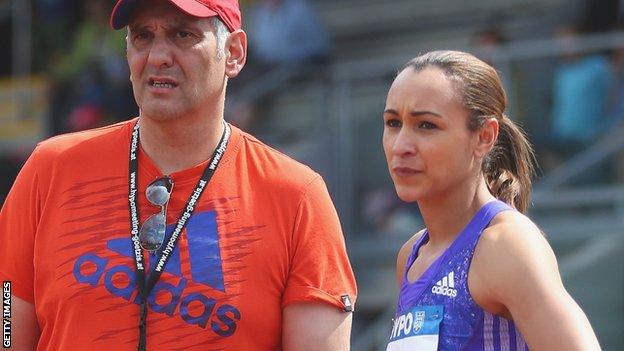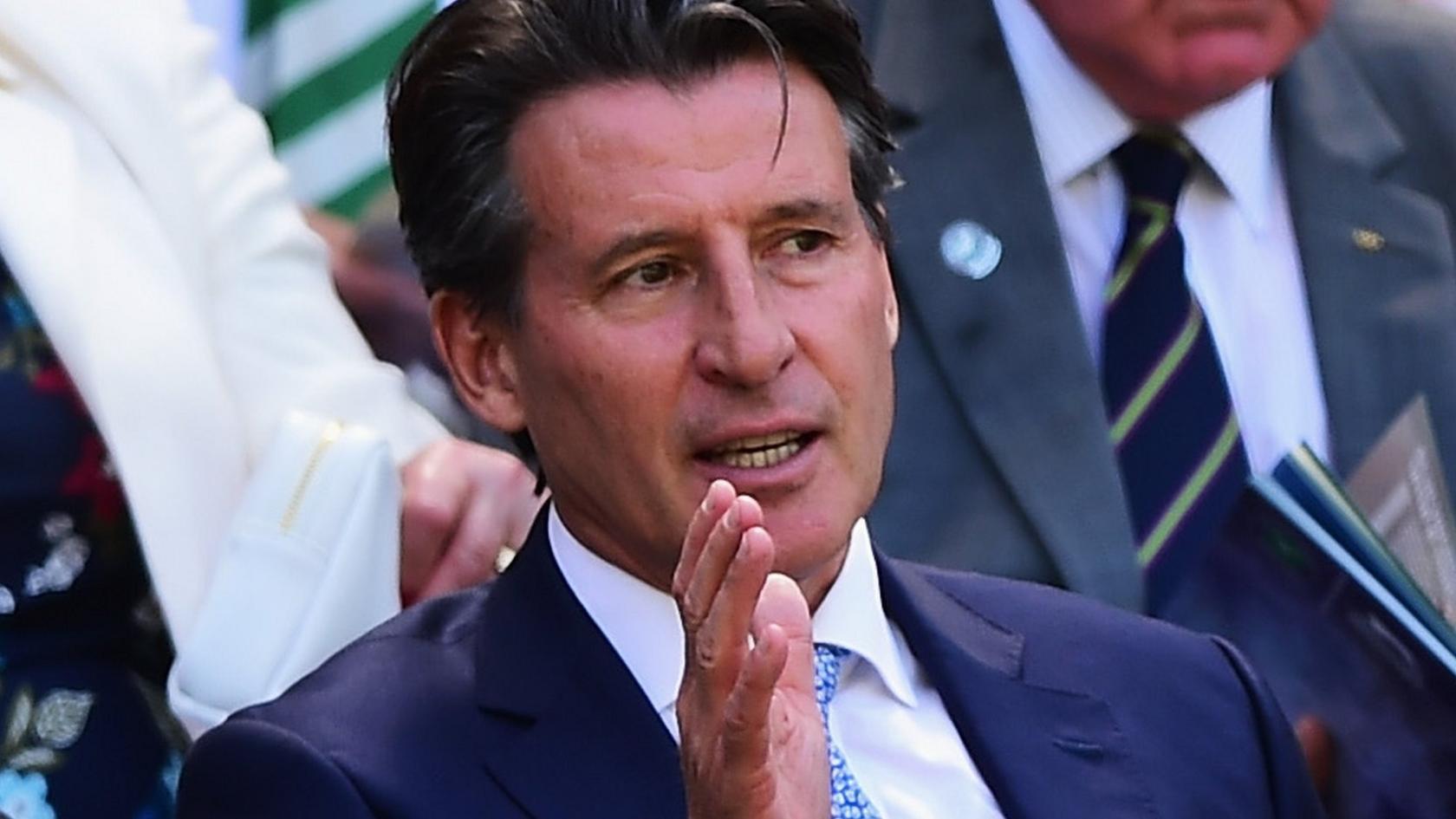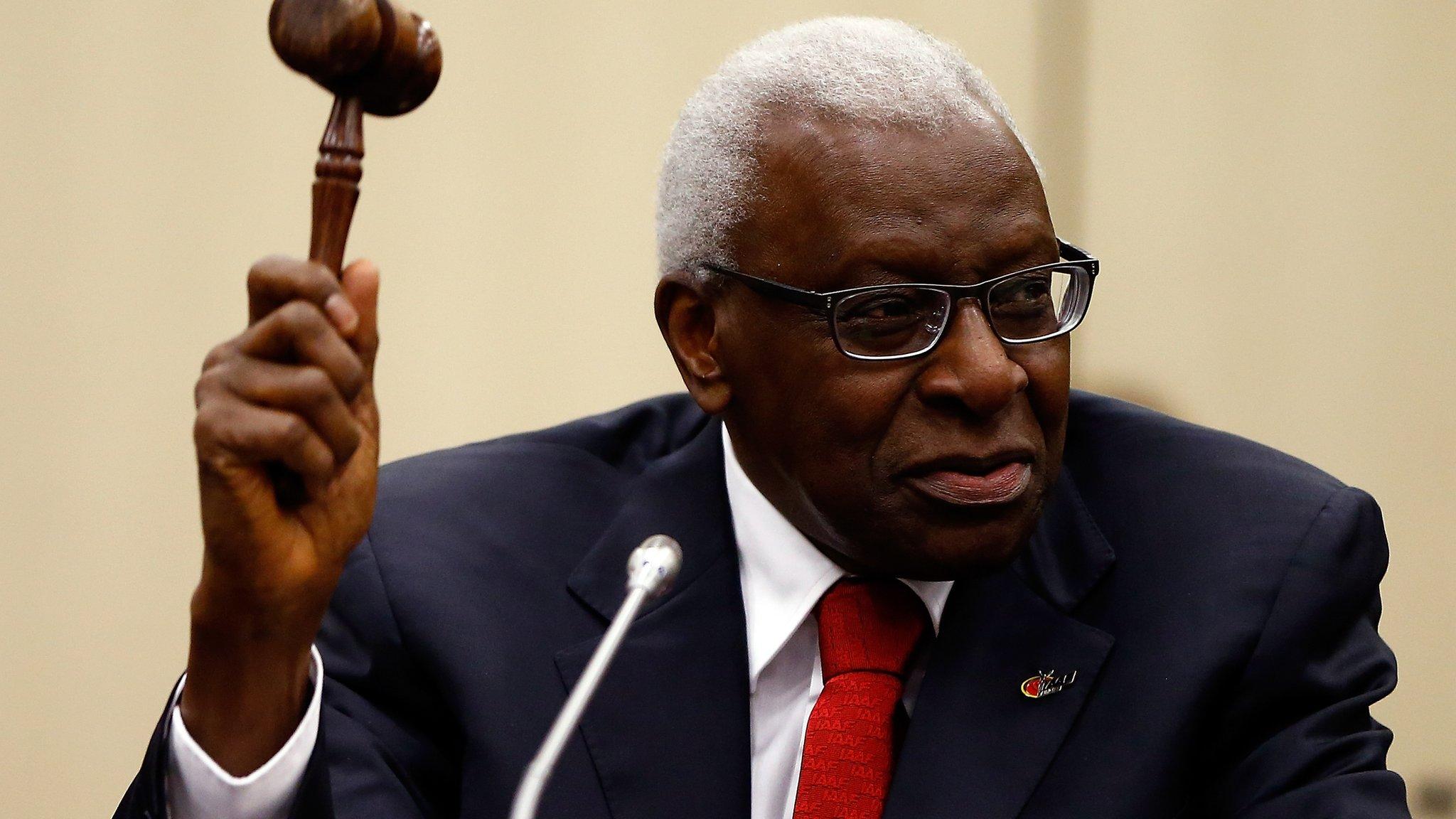Leaked IAAF doping files: Toni Minichiello questions lack of action
- Published

Toni Minichiello coached Jessica Ennis-Hill to Olympic heptathlon gold at London 2012
Jessica Ennis-Hill's coach Toni Minichiello has questioned why no action was taken over data suggesting widespread doping in elite athletics.
The Sunday Times, external published data from 5,000 athletes, which it says reveals an "extraordinary extent of cheating".
Minichiello says he reacted with initial "confusion", adding: "My question is, why has nobody acted upon it and who should have done that?"
He urged the sport's governing body to examine its "internal mechanisms".
Minichiello said the data casts a "sad shadow" over the World Championships in Beijing, which begin on 22 August.
The blood test data, which covers the period between 2001 and 2012 and belongs to the International Association of Athletics Federations (IAAF), was leaked by a whistle-blower to a German broadcaster, external and the Sunday Times.
The files show a third of all medals in endurance events at Olympics and World Championships in that period were won by athletes who recorded suspicious tests, according to independent experts who have analysed the data.
The Sunday Times investigation alleges that none of the athletes have been stripped of their medals.
"This information has been gathered and data collected on athletes going back a while, but nobody has acted upon it," Minichiello told BBC Sport.
"Should it have been the World Anti-Doping Agency, the IAAF or should it have been member federations?"
Also on BBC Sport | |
|---|---|
IAAF vice-president Lord Coe said the organisation would react "robustly" to the allegations.
"Whether it means wholesale reform, but certainly there needs to be some deeper investigation," Minichiello said. "Someone allegedly from the IAAF has released this information so what will their motives be for whistle-blowing?
"Did the IAAF not want to act on the information? The term zero tolerance has now been mooted but I am not sure what that means. It is only effective when there is suspension or some kind of enforcement when someone breaks the rules.
"The IAAF will have to look at their internal mechanisms and examine how this has come to pass."
Athletics faces crisis - IAAF boss Lamine Diack, speaking to BBC Sport's Dan Roan in February 2015
The IAAF said the data, external had been obtained "without consent" and that it reserved the right to take any follow-up action necessary.
It added it was preparing a "detailed response".
The independent commission of the World Anti-Doping Agency (Wada) will also investigate the claims, a move welcomed by UK Anti-Doping (Ukad).
Wada president Sir Craig Reedie said his organisation was "very disturbed by these new allegations... which will, once again, shake the foundation of clean athletes worldwide".
Ukad chief executive Nicole Sapstead said: "We have every confidence in our systems, and we have confidence in the clean British athletes we are here to protect. We are firmly committed to protecting clean sport and providing a level playing field for athletes to compete, and win, clean."
Minichiello, Ennis-Hill's long-time mentor, doubts there is time for punishments to be handed down before the World Championships but expressed hope that "something can be done" before next year's Olympic Games in Rio.
He added: "It is a sad shadow but we have a good British team who are hopefully going to succeed and I am just going to focus on the athletes I have there and try and make them perform as best as I can."
More on alleged doping in athletics | |
|---|---|
- Published2 August 2015

- Published2 August 2015
- Published16 February 2015

- Published10 September 2015

- Published8 February 2019
